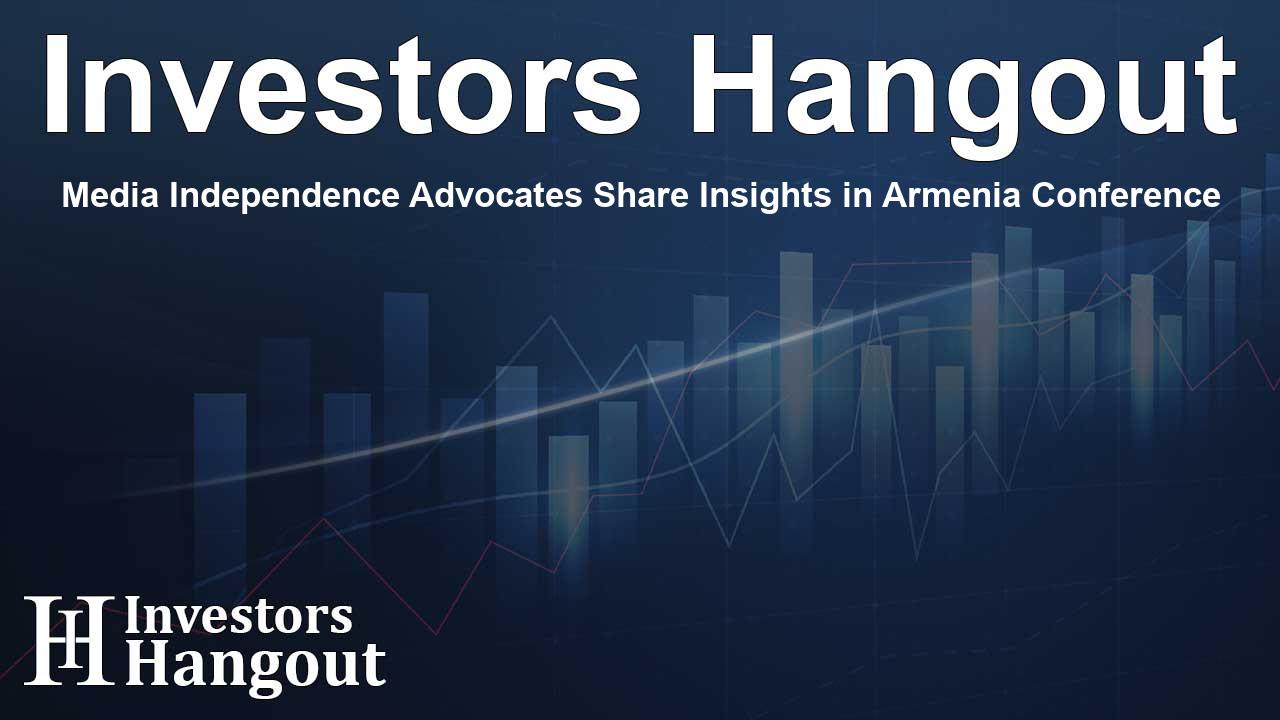Media Independence Advocates Share Insights in Armenia Conference

Media Conference Highlights Push for Self-Regulation in Armenia
Recently, a significant gathering took place involving media professionals and democracy advocates focused on Armenia's ongoing efforts to create a transparent media self-regulation framework. Panelists at this important conference underscored the need for clarity and independence in any proposed legislation that impacts the media landscape.
The Importance of Ethical Journalism
During the event, participants discussed the essential components that underpin successful media self-regulation. Emphasizing ethical journalism, the attendees voiced their commitment to combating disinformation and fostering media literacy. The overarching goal is to develop a media environment that promotes not only freedom of expression but also accountability.
Key Insights from the Panel Discussions
One of the keynote speakers, Jeanne Cavallier, representing Reporters Without Borders, highlighted how voluntary self-regulation, widely recognized in European Union nations, serves as a vital framework. This model encourages media outlets to adhere to ethical standards while enhancing transparency and trust among journalists and the public.
Shawn McIntosh moderated the first panel session, which explored whether self-regulation could work within local media. Panelists included renowned experts such as Susan McKay, Media Initiatives Center's Nouneh Sarkissian, and Marietta Mnatsakanyan, each contributing valuable perspectives on the formation of an effective legal framework.
Learning from International Examples
In her remarks, McKay drew parallels to Ireland's self-regulating Press Council, emphasizing that trust from all parties involved—journalists, the public, and government—is essential for such systems to thrive. The responsibility lies in the public's engagement, ensuring accountability within media channels.
Confronting the Challenge of Disinformation
The second session addressed the rising threat of disinformation. Moderated by Dan Perry, this discussion featured insights from Corina Cepoi, Mariam Gogosashvili, Seda Muradyan, and Andranik Shirinyan. The panelists explored strategies to tackle misinformation, recognizing that the problem extends beyond individual journalists to societal dynamics as a whole.
Collaborative Solutions for Ethical Journalism
Perry identified the necessity for a collective effort from both the industry and society to combat irresponsible journalism. Cepoi stressed the need for effective solutions that encompass the growing influence of social media, while Muradyan and Shirinyan advocated for institutional support and engagement programs aimed at nurturing media literacy and representing diverse voices.
Frameworks for Self-Regulation
Panelists stressed that any new media code of ethics should be straightforward and based on widely accepted principles, differentiating itself from potentially oppressive governmental control. This voluntary approach is aimed at creating a transparent environment where self-regulation can flourish without the fear of censorship.
Defining Key Terms in Media Law
As the proposed law evolves, it is crucial to clarify definitions around key terms such as 'media' and 'journalism.' Importantly, lawmakers must consider Armenia's fragmented and polarized media landscape, ensuring that self-regulation mechanisms appropriately reflect this reality.
Future Directions for Armenia's Media Landscape
Looking forward, the finalized draft of Armenia’s self-regulation law will be vital, with public discussions expected next year. The Venice Commission has recommended clear definitions and a better regulatory structure that includes both local and international frameworks.
In addition, educational initiatives surrounding media literacy will be paramount in establishing a foundation that empowers citizens to demand high-quality journalism, thus promoting a robust media environment. This is crucial, especially given the ongoing challenges posed by disinformation and the historical context in which Armenia operates.
Frequently Asked Questions
What was the main focus of the media conference in Armenia?
The main objective was to address the proposed media self-regulation law, emphasizing the need for ethical journalism, transparency, and independence.
Who were the key speakers at the conference?
Notable speakers included Jeanne Cavallier from Reporters Without Borders and moderator Shawn McIntosh, along with various panel experts.
Why is self-regulation important for journalism?
Self-regulation encourages ethical practices, accountability, and public trust while safeguarding democratic values in the media landscape.
What are some of the challenges faced by Armenia in media reform?
Armenia grapples with the legacy of authoritarian media practices and disinformation campaigns, compounded by regional geopolitical tensions.
What role does media literacy play in the proposed framework?
Media literacy is essential for empowering citizens, supporting ethical journalism, and combating the spread of misinformation.
About The Author
Contact Thomas Cooper privately here. Or send an email with ATTN: Thomas Cooper as the subject to contact@investorshangout.com.
About Investors Hangout
Investors Hangout is a leading online stock forum for financial discussion and learning, offering a wide range of free tools and resources. It draws in traders of all levels, who exchange market knowledge, investigate trading tactics, and keep an eye on industry developments in real time. Featuring financial articles, stock message boards, quotes, charts, company profiles, and live news updates. Through cooperative learning and a wealth of informational resources, it helps users from novices creating their first portfolios to experts honing their techniques. Join Investors Hangout today: https://investorshangout.com/
The content of this article is based on factual, publicly available information and does not represent legal, financial, or investment advice. Investors Hangout does not offer financial advice, and the author is not a licensed financial advisor. Consult a qualified advisor before making any financial or investment decisions based on this article. This article should not be considered advice to purchase, sell, or hold any securities or other investments. If any of the material provided here is inaccurate, please contact us for corrections.
